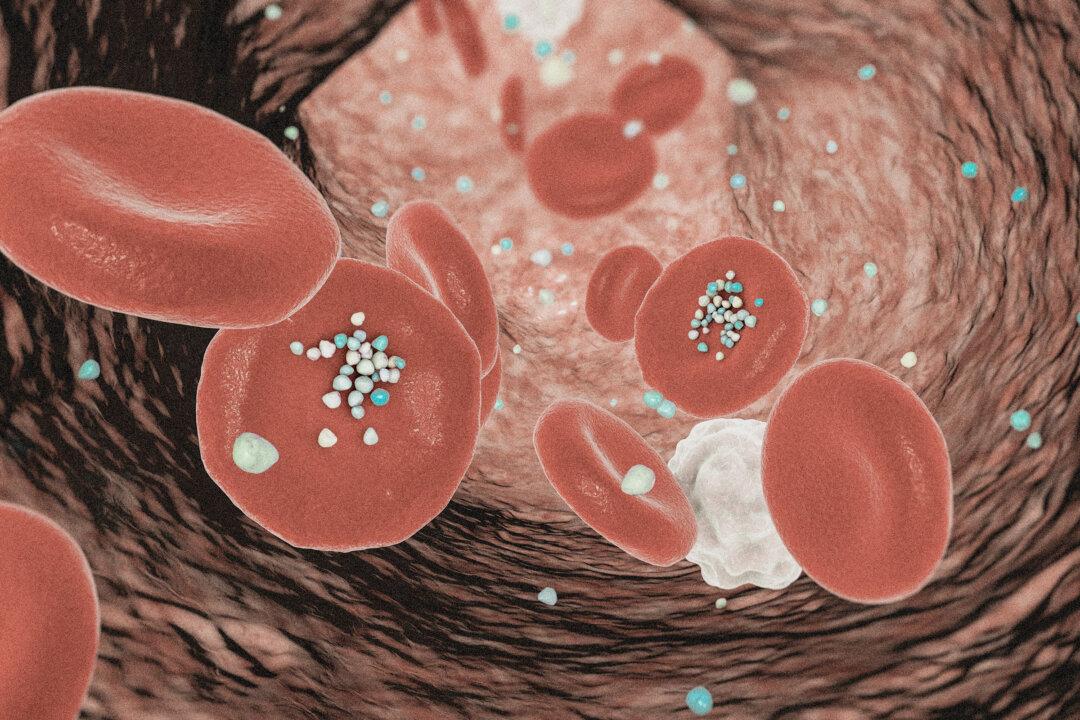Hospitalized premature babies are nearly three times more likely to experience brief breathing pauses after their routine two-month vaccinations, a clinical trial backed by the Centers for Disease Control and Prevention (CDC) has found.
Researchers say these episodes pose little risk and are manageable under medical supervision.
The new study, conducted by researchers at Duke Health, suggests that while vaccination increased the likelihood of apnea, the episodes were brief and without serious complications.
Apnea Risk and Vaccination
In this large randomized trial, published in JAMA Pediatrics on Jan. 6, premature infants born before 33 weeks were 2.7 times more likely to experience apnea after receiving their two-month vaccinations than those who did not receive the vaccines.Apnea occurs when the person stops breathing for more than 20 seconds or if the pause occurs for longer than 15 seconds with fewer than 80 heartbeats per minute.
More than 200 infants 6 to 12 weeks old were examined as part of the study, many of whom had a history of apnea with caffeine treatment.
The study was conducted from 2018 to 2021.
Half of the babies received their first set of routine childhood vaccines, including protection against pneumonia, diphtheria, tetanus, pertussis (whooping cough), hepatitis B, polio, and meningitis. The other half of the babies were unvaccinated.
The U.S. Centers for Disease Control and Prevention (CDC) has since added more vaccines to the childhood immunization schedule.
Both groups of babies were observed over 48 hours. More vaccinated babies experienced apnea, with 24 percent experiencing at least one apnea event compared with only 10 percent in the unvaccinated group.
The apnea episodes were brief, with unvaccinated babies having a negligibly longer duration.
On average, apnea episodes were 28 seconds in the vaccinated group and 33 seconds in the unvaccinated group—a difference deemed insignificant by researchers.
Additional Findings
Among the participants, four vaccinated infants were evaluated for potential sepsis, a condition in which the body reacts abnormally to an infection. In contrast, only one unvaccinated infant was suspected of having the condition.The authors also found a stronger link between vaccination and apnea episodes in premature babies born closer to full-term: 30 percent of vaccinated babies at 37 weeks’ gestation time or more experienced apnea compared with only 6 percent in the unvaccinated group.
Infants born closer to full-term tend to be healthier and receive less treatment to prevent apnea. Their lack of treatment may be why these vaccinated babies had a stronger association between vaccination and apnea.
Caffeine therapy, during which a baby is given a small dose of caffeine citrate, is commonly used to treat recurring episodes of apnea in premature babies. Therefore, caffeine therapies given before vaccination may help protect infants from the respiratory stress triggered by vaccination.
Benefits Outweigh the Risks: Expert
Hospitalized premature infants have weakened immune systems, making them more vulnerable to illnesses, Greenberg said. These babies also often have preexisting conditions that complicate their care when they become sick.“They also don’t have the full transfer of immunity from their mothers,” a spokesperson from the CDC told The Epoch Times in an email. As a result, they are at higher risk of severe illnesses, such as whooping cough and pneumonia, which are linked to apnea and can be life-threatening.
“Our study supports that the current vaccination recommendations for premature infants are appropriate,” Greenberg said in the statement, adding that “it’s important to educate parents about what to expect when their premature infants receive vaccines while in the hospital.”
Evaluating Vaccination Risks for Premature Infants
Dr. Renata Moon, a pediatrician not involved in the study, offered a different perspective on vaccinating premature infants in the hospital. In an email to The Epoch Times, she pointed to the importance of fully understanding the risks and benefits of such interventions.“We need to understand the full statistical risks and benefits of any medical intervention,” she wrote, adding that “premature hospitalized infants have no real risk of contracting hospital acquired pertussis, hepatitis b, diphtheria, tetanus and polio” because of strict isolation practices.
While the risk of these diseases in a hospital setting is low, Moon acknowledged the risks associated with pneumococcal and Haemophilus influenzae type b (Hib) infections.
These bacterial infections can lead to life-threatening conditions like pneumonia or meningitis, and preterm infants are particularly vulnerable because of their underdeveloped immune systems. Moon noted that the study did not address whether unvaccinated premature infants contracted these infections during their hospitalization.
“There is no data to suggest that the unvaccinated premature infants in this study contracted any of these vaccine preventable illnesses while hospitalized,” she wrote in her email. The question remains whether vaccinating these “medically fragile babies at this age provides any clear benefit,” she said.
Each case may require individual consideration based on the baby’s specific health needs.
Delayed Vaccination Concerns
Delayed immunization is a challenge for hospitalized preterm infants, particularly in the neonatal intensive care unit (NICU), as it may lead to gaps in vaccination coverage during early childhood, according to the CDC spokesperson.She stated that most premature babies will no longer experience apnea episodes once they leave the NICU.







